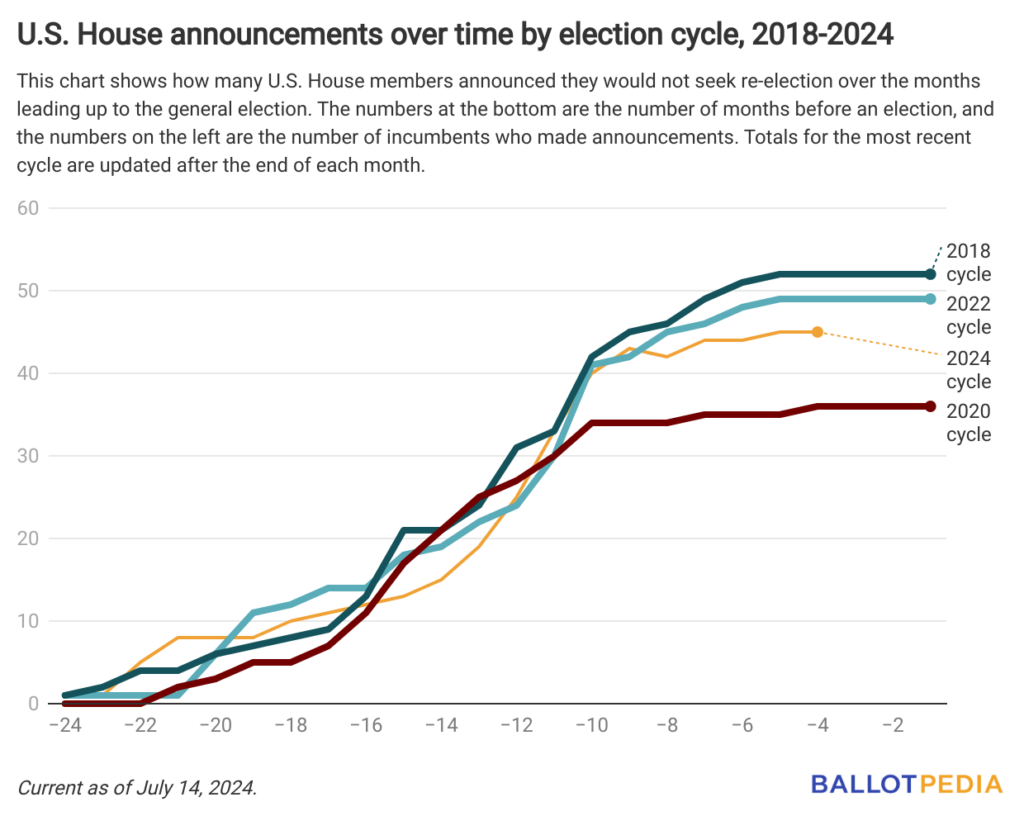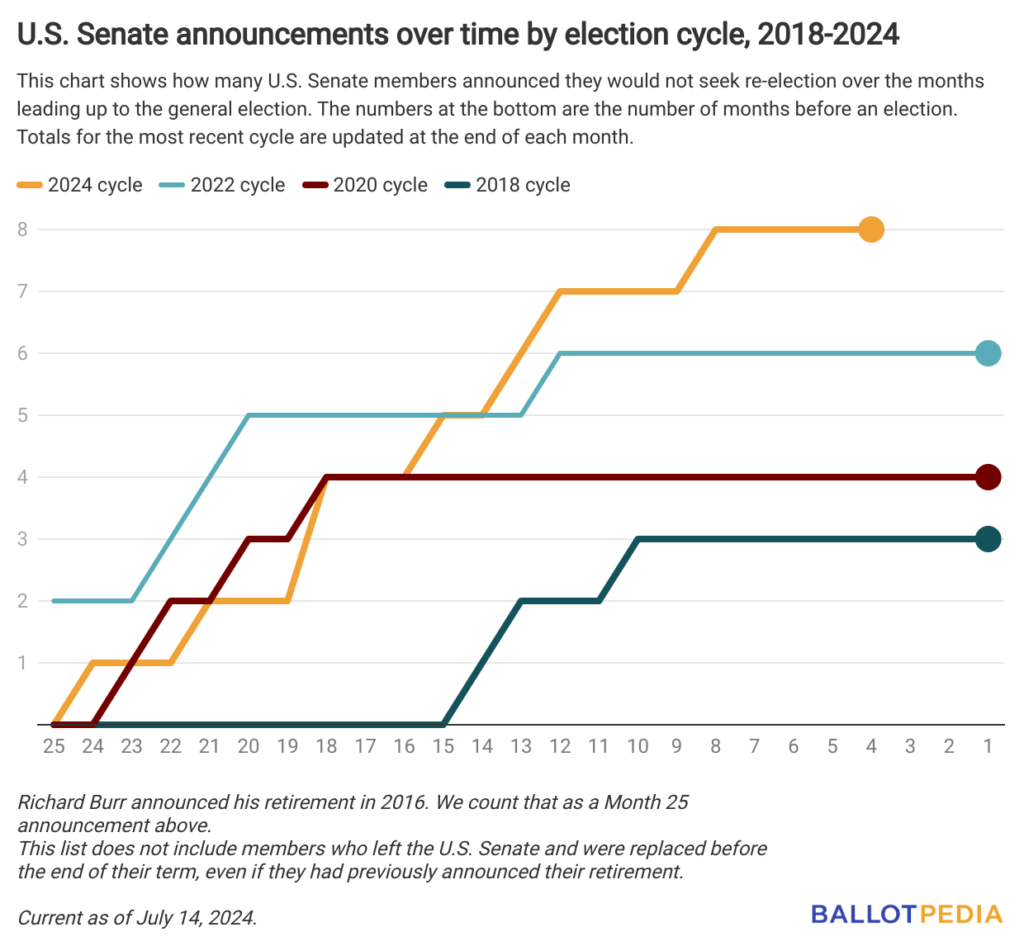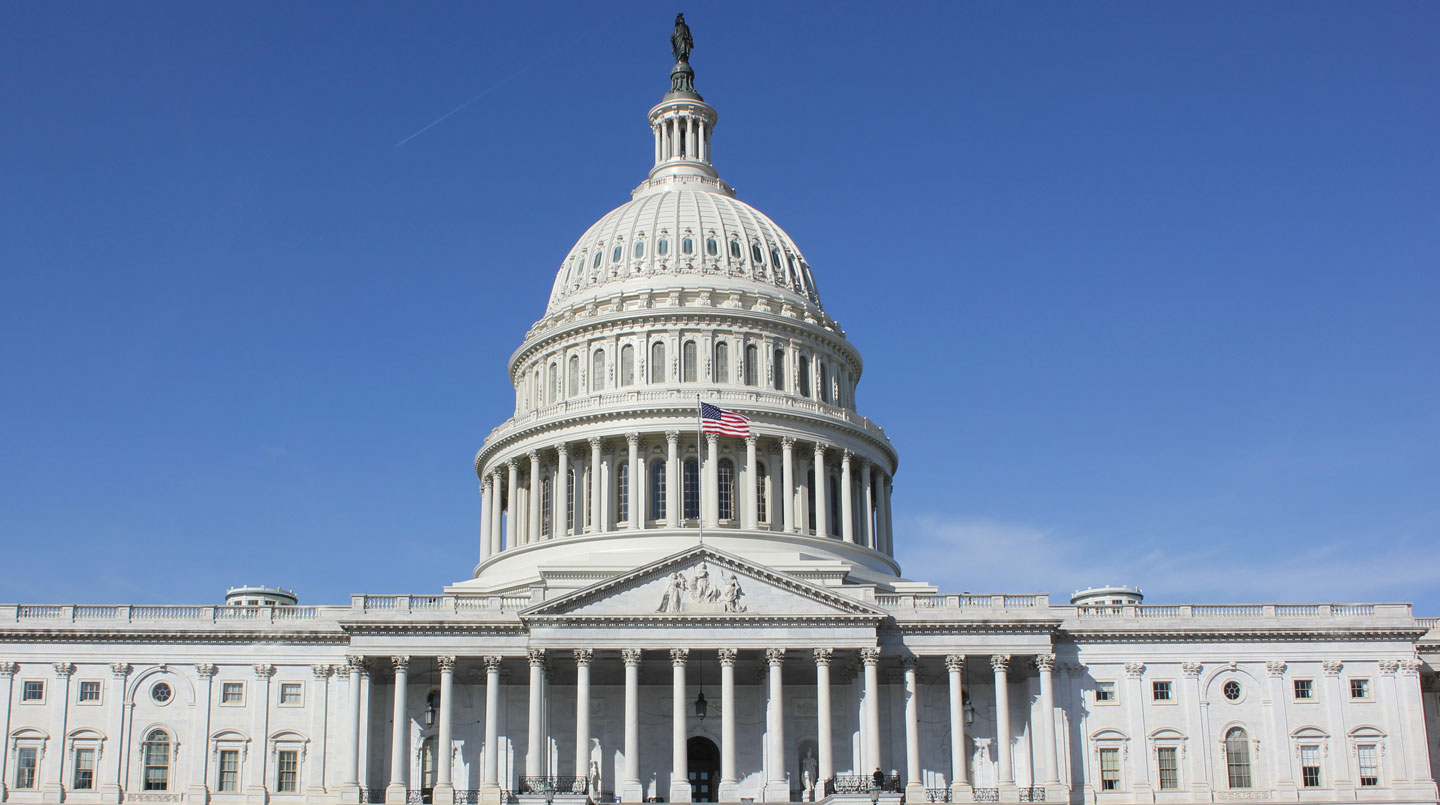Fifty-three members of Congress—eight senators and 45 representatives—have announced they will not seek re-election this year. Ballotpedia does not include incumbents leaving office early in our analysis of incumbents not running for re-election.
Since our June 19 update on congressional incumbents not seeking re-election, there have been no new retirement announcements. The last incumbent to announce their retirement was Rep. Garret Graves (R-La.).
In 2018, 55 incumbents retired from Congress. In the two election years following 2018, the total number of retirements decreased to 40 in 2020, then increased to 55 in 2022. An average of 38.68 members retired from Congress each election year between 1930 and 2022.

House
In the House, 45 incumbents are not seeking re-election this year. Between 1930 and 2022, there was an average of 33.28 House retirements each election year.
Looking at all representatives who are not seeking re-election in 2024:
- 12—three Republicans and nine Democrats—are running for the U.S. Senate.
- Two—one Democrat and one Republican—are running for state attorney general.
- Two—one Democrat and one Republican—are running for governor.
- One Democrat ran for President of the United States.
- 28—12 Democrats and 16 Republicans—are retiring from public office.
When comparing the 45 House retirements to the last three cycles, there were 49 House retirements in 2022, 36 in 2020, and 52 in 2018.

Senate
On the Senate side, eight incumbents are not seeking re-election this year. Between 1930 and 2022, there was an average of 5.4 Senate retirements each election year.
The eight senators who are not seeking re-election are:
- Sen. Mike Braun (R-Ind.)
- Sen. Laphonza Butler (D-Calif.)
- Sen. Ben Cardin (D-Md.)
- Sen. Tom Carper (D-Del.)
- Sen. Joe Manchin (I-W.Va.)
- Sen. Mitt Romney (R-Utah)
- Sen. Kyrsten Sinema (I-Ariz.)
- Sen. Debbie Stabenow (D-Mich.)
The number of senators not running for re-election this year is higher than the three previous election years. Six senators did not seek re-election in 2022, four didn’t in 2020, and three didn’t in 2018.




